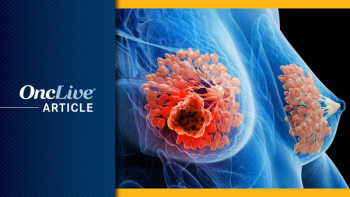
PIK3CA Mutations in HER2-Positive Breast Cancer
For High-Definition, Click
Certain mutations in the PI3 kinase pathway seem to influence sensitivity to HER2-targeted therapy, explains Mark D. Pegram, MD. These findings were initially supported by a biomarker analyses from the four-arm NeoSphere trial that examined pertuzumab plus trastuzumab with docetaxel in newly diagnosed patients with HER2-positive early-stage breast cancer.
Overall, this analysis did not show a significant different between PIK3CA-mutant and wild type, in terms of variation in pathologic complete response (pCR). However, when examining patients with PIK3CA exon 9 mutations only 2 out of 28 had a pCR, Pegram states. Moreover, 0 out of 4 patients with PIK3CA exon 7 mutations had a pCR. This information suggests these mutations have a deleterious effect, even for patients receiving pertuzumab, Pegram states.
Interestingly, Pegram notes, a biomarker analyses from the phase III EMILIA trial did not find an association between PIK3CA mutations and resistance for women with HER2-positive metastatic breast cancer treated with T-DM1. This same analysis found that PIK3CA mutations negatively impacted the efficacy of lapatinib plus capecitabine. This data seems to suggest that T-DM1 might overcome the deleterious impact of PIK3CA mutations, Pegram believes.
The overall analysis would suggest that patients with PIK3CA mutations still benefit from treatment with pertuzumab, notes Joyce A. O’Shaughnessy, MD. This may indicate that pertuzumab impacts the PI3 kinase pathway more than lapatinib, which may have a greater impact on the HER1/ERK pathway.
There are several ongoing clinical trials exploring treatments for HER2-positive breast cancer, including APHINITY, ALTTO, and NeoALTTO, explains Adam M. Brufsky, MD, PhD. The phase III randomized KAITLIN study (BO28407) will compare T-DM1 plus pertuzumab to trastuzumab with pertuzumab plus a taxane as adjuvant therapy following anthracyclines for patients with HER2-positive primary invasive breast cancer.




































